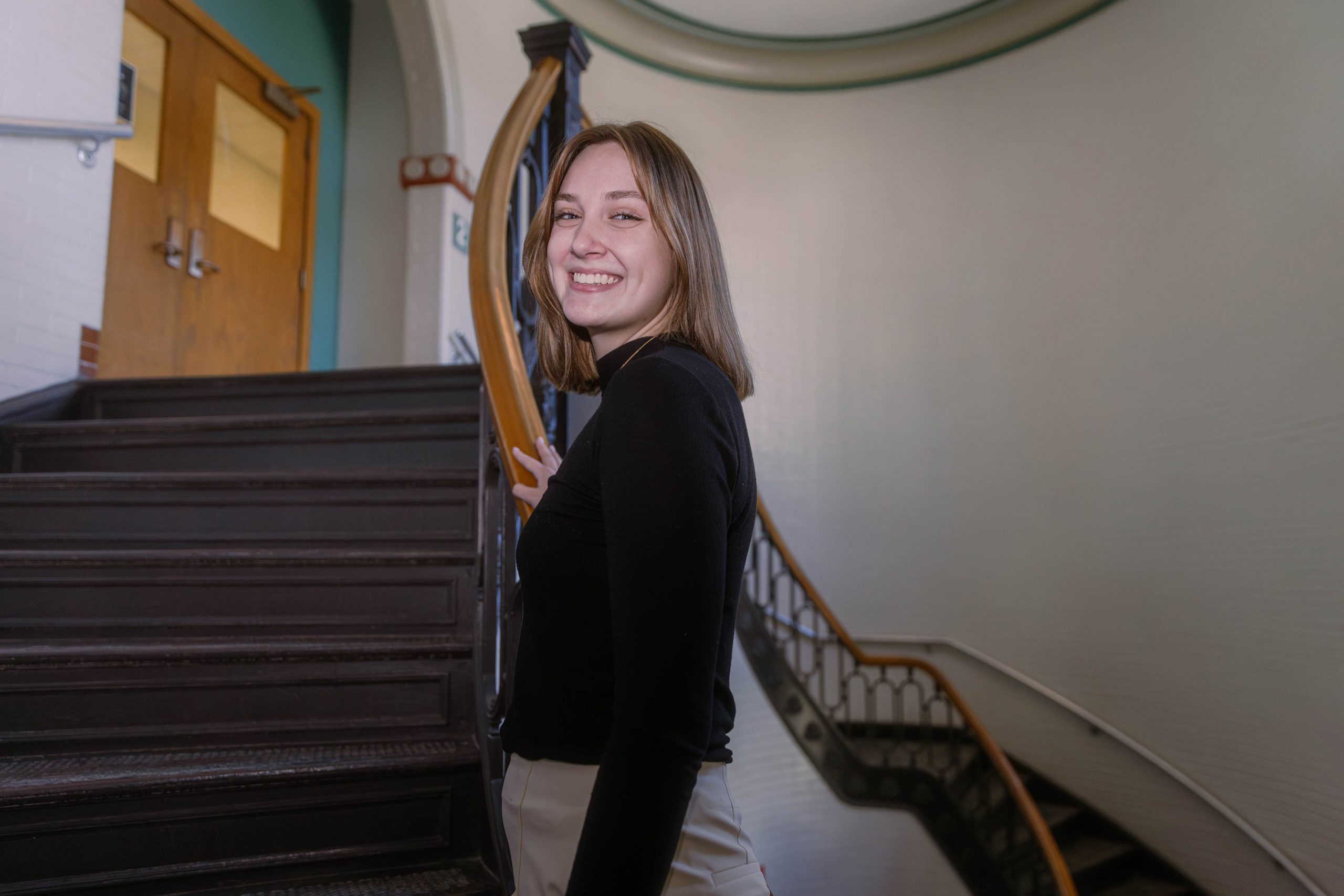When opportunity knocks


When Gillian Anderson (’24 agricultural and rural policy studies, international agriculture) received an email revealing the details of an extraordinary opportunity, she thought it was unattainable, so she deleted it. Fortunately, a follow-up conversation with Department of Sociology and Criminal Justice assistant teaching professor and advisor Ramesh Balayar gave Anderson the confidence to take a second look. She is grateful she did because during the summer of 2023, Anderson was living in Rome, Italy, collaborating with a United Nations organization that combats food insecurity.
The experience, made possible through the Dean’s Global Agriculture and Food Leadership Program, is administered through Iowa State’s College of Agriculture and Life Sciences. It gives students the chance to gain valuable skills and knowledge related to global agricultural production, resources, and food issues. Students conduct coursework on campus during spring semester before spending the first month of summer break in Rome, working directly with United Nations Food and Agriculture Organization (FAO) professionals.
A new direction
For Anderson, working with FAO sparked a new interest in research.
“I would love to work for a multi-national organization or nongovernmental organization doing research, something similar to what I was doing his summer,” Anderson said. “My favorite thing about this experience was the sense of purpose I got out of it, but also the opportunity to work with experts in their field in such a cool place like FAO. As a college student, I would have never pictured myself doing anything like that, so all around it was amazing.”
Anderson worked with an FAO group that researched information for an upcoming report related to genetic livestock resources. Specifically, Anderson focused on the social and political implications of gene-editing in livestock, including what regulations prevent gene-editing from progressing and how low- to middle-income countries might respond to gene-edited livestock.
She admits the research was intense, but it helped guide her future career path.
“I would like to go to grad school, either for rural sociology or international development,” she said. “I really have an interest in research and working for an organization like I did this summer. I’m also not ruling out teaching at the college level.”
A major revelation
Anderson initially planned to major in animal science when she came to Iowa State, but after a heavy dose of the hard sciences her first year, she realized the humanities were a better fit. Agriculture, however, was still her focus. That’s when Anderson discovered the agricultural and rural policy studies major in the Department of Sociology and Criminal Justice. She appreciates the multi-faceted approach the major takes toward agriculture.
“It’s kind of like sociology and political science and agriculture all put together,” Anderson said. “You also get more than just an Iowa-centric view of agriculture. You really get a global perspective.”
Anderson can’t think of one agricultural and rural policy studies class she hasn’t loved. One of her first courses was Rural Society in Transition (SOC 230), where they discussed issues facing rural America. This hit home for Anderson, who grew up in Charles City, Iowa.
“I grew up in a rural community so I could see some of those issues being mirrored in my own community and it was really interesting to learn about why that stuff is happening and dig deeper into it,” she said.
Find your passion
Anderson credits the Dean’s Global Agriculture and Food Leadership Program with opening her eyes to the possibilities that exist in the global agriculture arena. As a result, she is participating in programs in Nepal over spring break and in Uganda this upcoming summer to explore those interests even further. She advises current and future agricultural and rural policy studies students to find their passions as well.
“I wouldn’t have gotten involved with this stuff if I hadn’t found what I was really interested in and if I hadn’t fallen into ag and rural policy,” Anderson said. “I think finding out what you’re interested in and excited about just opens up everything else.”
